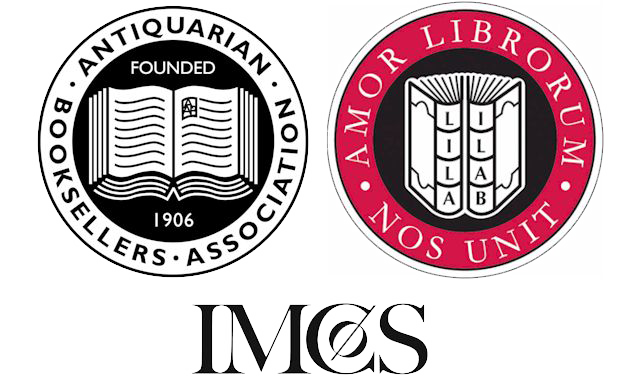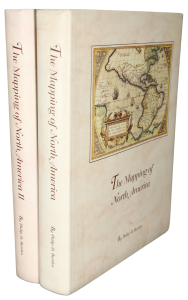Rare Maps and Prints
- World & Celestial
- North America
- West Indies, South & Central America
- British Isles
- British Isles
- English counties
- Large-scale
- Bedfordshire
- Berkshire
- Buckinghamshire
- Cambridgeshire
- Cheshire
- Cornwall
- Cumberland
- Derbyshire
- Devon
- Dorset
- Durham
- Essex
- Gloucestershire
- Hampshire
- Herefordshire
- Hertfordshire
- Huntingdonshire
- Islands
- Kent
- Lancashire
- Leicestershire
- Lincolnshire
- Middlesex
- Norfolk
- Northamptonshire
- Northumberland
- Nottinghamshire
- Oxfordshire
- Rutland
- Shropshire
- Somerset
- Staffordshire
- Suffolk
- Surrey
- Sussex
- Warwickshire
- Westmoreland
- Wiltshire
- Worcestershire
- Yorkshire
- Wales
- Scotland
- Ireland
- Western Europe
- Eastern Europe
- Middle East
- Africa
- Asia
- Australasia & Pacific
- Decorative Prints
- Title Pages
Mr. Philip D. Burden
P.O. Box 863,
Chalfont St. Giles, Bucks HP6 9HD,
UNITED KINGDOM
Tel: +44 (0) 1494 76 33 13
Email: enquiries@caburden.com
The origin of this EXTREMELY RARE WORK is the distance tables invented by John Norden and first published by him in 1625 under the title England An Intended Guyde For English Travailers. His design presented a triangular distance table. These were straight line measurements; no record was made of the actual road distance. Matthew Simmons (fl.1635-54) was originally from Warwickshire and was apprenticed to the printer John Dawson in 1624. He was made free of the Stationers’ Company in 1631/2 and set himself up first as a bookseller and printer. He is arguably best known as the printer and seller of John Milton’s works. The only address recorded for him is the Golden Lion in Duck Lane where he remained until his death in 1654. The first work entered under his name in the Stationers’ Register is the Direction for the English Traviller in 1635; it is the EARLIEST ENGLISH ROAD book with maps. Simmons utilised the Norden tables but added in the opposite diagonal empty space a small map of the region. These were derived from the playing card maps of William Bowes as published in 1590 although here market towns are added. Their miniature size has led them to be referred to fondly as the ‘thumb-nail’ maps. They are engraved by Jacob F. van Langeren (fl.1635-43) who arrived in London from the Netherlands around 1633.
The maps by their very nature are lacking in detail. They display the county boundary with the names of the neighbouring counties, the market towns lettered although not all are present in the table, rivers and radiating lines to the eight principal compass points just as on the original Bowes playing card maps. The county town is marked with a cross above it. All are engraved to the same scale and have north at the top. The tables have been corrected from those of Norden, some in detail, others from typographic errors. Next to each town in its vertical column is its bearing in relation to the county town.
As an interesting aside 1635 was an important year in postal history. Historically only Royal Mail was allowed to be carried, in other words letters to or from the King or his court. On 31 July 1635 King Charles I opened the service up to the public. A second edition of the book was published in 1636 with only a few alterations. For the later variant issue of the same year an extra line of mileages is added along the diagonal representing the distances from London. However it was not needed on those of Middlesex, Essex and the general table of distances for which London was already present, nor does it appear on that of Wales. The atlas is an exceedingly rare item LAST APPEARING on the market in 1985. The plates passed in to the hands of Thomas Jenner who re-engraved the maps in a larger size. This example is of the second state with the extra line of mileage figures. Provenance: private English collection. Skelton (1970) 22; Smith Hereford p. 69.
The maps by their very nature are lacking in detail. They display the county boundary with the names of the neighbouring counties, the market towns lettered although not all are present in the table, rivers and radiating lines to the eight principal compass points just as on the original Bowes playing card maps. The county town is marked with a cross above it. All are engraved to the same scale and have north at the top. The tables have been corrected from those of Norden, some in detail, others from typographic errors. Next to each town in its vertical column is its bearing in relation to the county town.
As an interesting aside 1635 was an important year in postal history. Historically only Royal Mail was allowed to be carried, in other words letters to or from the King or his court. On 31 July 1635 King Charles I opened the service up to the public. A second edition of the book was published in 1636 with only a few alterations. For the later variant issue of the same year an extra line of mileages is added along the diagonal representing the distances from London. However it was not needed on those of Middlesex, Essex and the general table of distances for which London was already present, nor does it appear on that of Wales. The atlas is an exceedingly rare item LAST APPEARING on the market in 1985. The plates passed in to the hands of Thomas Jenner who re-engraved the maps in a larger size. This example is of the second state with the extra line of mileage figures. Provenance: private English collection. Skelton (1970) 22; Smith Hereford p. 69.
SIMMONS, Matthew
Herefordshire wth. some confining Townes
London, 1635-[36]
105 x 105 mm., in good condition.
Stock number: 5230
SOLD






